Brenda Russell has had a long, notable career as a singer and a songwriter. She is best known for the songs “Piano in the Dark”, which was a hit for herself in 1988, and “Get Here”, which was a hit for Oleta Adams in 1991. Other songs by Brenda include “If Only For One Night”, which was a hit in 1985 for Luther Vandross, and “She Walks This Earth (Soberana Rosa)”, for which Sting won a Grammy for Best Male Pop Vocal Performance in 2000. She was also nominated along with Allee Willis and Stephen Bray for a Tony Award for Best Original Score the Broadway musical The Color Purple.
Her songs have also reached the next generation through samples by Flo Rida (who samples “Piano in the Dark” for “I Cry”) and Kayne West (who samples “Think About You” by Brian and Brenda Russell for “See Me Now”).
This interview was for a preview article for a concert in support of The Rhythmic Arts Project (TRAP) on 2/6/15. It was done by phone on 1/23/15.
Jeff Moehlis: What can we look forward to at the upcoming show?
Brenda Russell: I’m going to sing a couple of songs. I’m looking forward to it – I love Bill and Tamara Champlin, and Tata Vega. I’ve known them a long time. It’ll be fun for us all to be together and sing with each other. We’re going to have a good time.
I love Eddie Tuduri’s foundation TRAP, what he’s doing with the children. So I look forward to being there to serve.
JM: How long have you known Eddie?
BR: Eddie played drums for the very first concert I ever did. I didn’t even realize that until he reminded me, because it was so long ago. It was my very first show, and he was the drummer and James Newton Howard was the keyboardist, which is really funny – he scores movies now, he’s a major player in the movie score business. There were just a lot of talented people on the stage.
JM: That’s a good way to start, right?
BR: Yeah, it was a great way to start. I was so scared I totally lost everything that was in my stomach before I went onstage. I was so petrified. My first show was on the lot of A&M, which used to be Charlie Chaplin’s movie production company and became A&M Records owned by Herb Alpert and Jerry Moss. It was the a big conference for black radio from all over the country – so it was like, you know, a little thing [laughs]. My first show, with all these heavyweight radio people from across the nation. I was a little nervous.
JM: I expect it’s gotten easier now to get up onstage.
BR: Yeah, it’s easier now. Much easier.
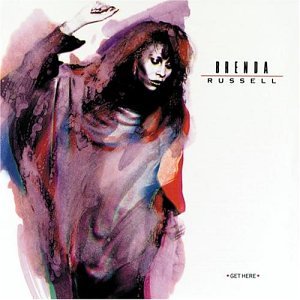
JM: I want to ask you about your song “Piano in the Dark”. What’s the story behind that song?
BR: The music was written by Jeff Hull, mostly, and Scott Cutler. They sent me a cassette tape of the music, and it was beautiful. When I played it I thought, “Wow, that’s beautiful.”
I’m a person who collects song titles – I had this book of song titles. They called me after I’d had it for a couple of days, and they said, “What’ve you got?” They were very excited that I was going to write the lyric and the melody. And I didn’t have anything because I was just listening. So as I’m talking to them I flipped open my book of titles, and the thing that jumped out at me was “Piano in the Dark”. And I went, “How about ‘Piano in the Dark’?” That’s how easy it was. I didn’t even think about it. “How about ‘Piano in the Dark’?” And they went really quiet, and then they said, “What does that mean?” [laughs] I was like, “I don’t know. I’ll figure it out.” And I figured it out. It always amazes me how you never know what’s going to happen with a song. I didn’t even think about it – it just jumped off the page, that title. It seemed to go with the music, in my mind. So I just blurted it out.
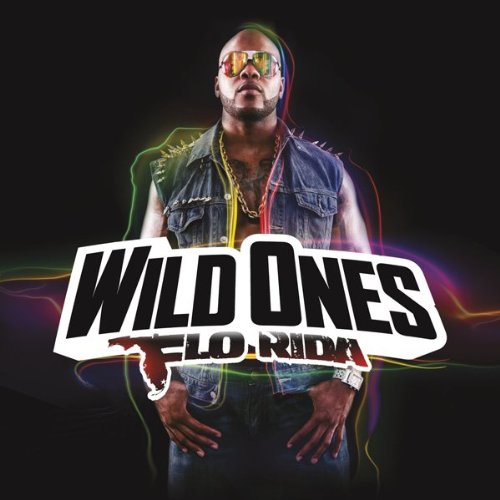
JM: Today’s generation probably knows that song because it was sampled in a song by Flo Rida? How does that work? Do you get a call from a lawyer saying, “Hey, we want to use a sample of your song?”
BR: Yeah, someone from their camp contacts you to get a release to let them use the song in the sample. So Flo Rida’s people sent me a request for a release to let them use it. It was OK with me, and they used it – and it was huge.
JM: Speaking of samples, I know that Kanye West sampled one of your songs. What do you think about how that turned out?
BR: I thought it was great. It’s always a surprise to me when people find these old songs, from my old catalog. That particular one that Kayne did I wrote with my ex-husband, Brian Russell. I don’t know how they find these songs. It’s amazing. They just did it.
JM: They just took a very small piece from your song and looped it. But it works so well.
BR: I thought it was unusual for him, actually.
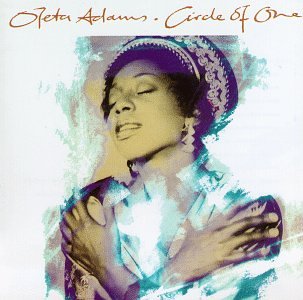
JM: Another one of your songs was “Get Here”, which was a hit for Oleta Adams. What’s the story behind that song?
BR: I wrote that song when I was in Stockholm, Sweden. I had this great little apartment, sort of a penthouse apartment in this old building. It had an octagonal room that I used as my writing room, overlooking the city of Stockholm. This one particular day there were some hot air balloons. That city is very incredible – it’s beautiful – and I just got the idea of how many ways can a person get to a person. It became a game. I like writing songs as part of a game. Can you reach them by railway? By trailway? Can you reach them with your mind? By caravan? Across the desert like an Arab man? It becomes fun to do that.
But I thought it was really corny when I wrote it. My friend – my Swedish engineer – I asked him to come over so I could play it for him to see what he thought. Because I was recording in Stockholm at the time. He thought it was really good, so I kept going forward.
I actually tried not to write the song because my record company was telling me I needed an up-tempo song, and this was not that. So I didn’t even record it or write it down, or hum it into a machine. I had no way of notating the song. I went to bed, and usually if you don’t put something down you forget it, like a dream. And when I woke up the next morning the melody was still in my head, which has never happened to me before or since, that you go to sleep and you wake up and the song’s still there. That was unique, and I knew that meant that I had to pay attention and go and write the song, on a spiritual level.
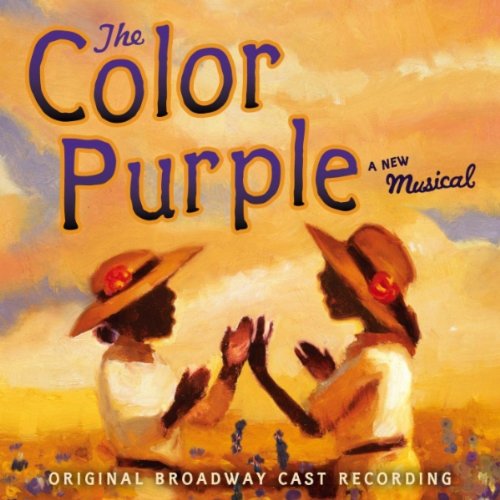
JM: How did you get the gig working on the music for the Broadway musical The Color Purple?
BR: That was being in the right place at the right time. I was working with Stephen Bray and Allee Willis on an animated internet show that Allee was working on. She asked us to come and help her write it. So we were together writing this music, and there was a magic between the three of us when we were doing the music. One day I said, “We need something bigger”, because I knew there was something going on there. And the next thing you know we got a call from Scott Sanders, who was looking for me. I was on his list of people to contact to write the music for The Color Purple. He called Allee because he knew she knew me, and I just happened to be working with her at the time. She said, “Well, the three of us are working together. You should let us all have a shot at it.” And he said, “OK, but no special preferences for you guys.” So we took six weeks or so to write two songs for the hardest scenes in the show. We had sort of a makeshift script, and we took the busiest scene that had multiple characters coming and going. We wrote that – it’s called “Shug Avery Comin’ to Town”. We wrote two songs, one which did not make the show but the other one did. They both got us the gig.
But what was funny is we sent the demo to him by FedEx. We knew what time he would get it, and we never heard from him. We didn’t hear from him for hours. We got nervous, because we thought for sure that we’d done a good job, but then we didn’t hear from him. And then hours later he called us. He said, “I’ve been dancing around. I’m playing it. I called Alice Walker.” He forgot to call us. He was spending so much time listening to it. [laughs] We were all dying. “Oh my God, we didn’t get the gig.” Then we got the gig, and we were very excited. Little did we know, five years of work was lying ahead of us. Five years of working on this show every day, like a real job, which I was always trying to avoid in my musical life. And there I was, working every day. It was wonderful, a wonderful experience. Very difficult. Learned a lot. We went to see all kinds of shows, because none of us had ever written a Broadway show. So we went to see all kinds of shows, and we read the book, and we saw the movie. We just put everything together, and made it our own?
JM: So would you ever do that again, work on a musical like that?
BR: I’m doing it right now. I’m working on a new musical with Stephen Bray – it’s called “Backstage at the Apollo”. It should be interesting, and I’m very inspired because I just came back from New York where I saw Sting’s musical – it’s called “The Last Ship”. It was so excellent. It was so brilliant. It just re-inspired my about Broadway.
JM: When I look at your bio, you’ve sung vocals with a number of well-known artists. Are there any of those experiences that particularly stand out to you?
BR: So many. I sang with a lot of people, yes. I sang background on a lot of records. The one I was probably most excited about was Barbra Streisand, because I loved her so much. It was such an honor to sing on her record. Dusty Springfield, I loved working with her. And Earth, Wind & Fire were the first big group to ask me to write for them, and that was very exciting. David Foster helped me get that gig. He recommended me to Maurice White to write some lyrics for them.
I worked with amazing people. Elton John signed me to my first record deal with my ex Brian. We were a duo, and he signed us – he had a label – in ’75. That was extremely exciting because he was like King of the World at that moment. It was always an honor to work with brilliant people. You learn. If you’re smart, you try to learn what you can.
JM: What advice would you give to an aspiring musician?
BR: My advice would be to listen to the voice inside of yourself – everyone has their own voice – and not try to sound like other people, or copy other artists. Because you can always do you. Sometimes it’s a little harder path, because it’s more original, and people have trouble with people who are original sometimes, at the beginning. But if it works, you can do it forever and people respect you for staying true to your own voice. I would say, follow your heart, follow your intuition about your gift of music, lyrics, or whatever it is that you’re doing in life.
JM: You mentioned that you’re working on a new musical right now. Are there other things that are in the works that we can look forward to?
BR: I’m writing with various people for other artists. I don’t know who the other artists are specifically yet – you never know.
JM: You shop them around, right?
BR: Yeah, you just write the songs. I’m writing with Bill Champlin, who I love – a great, great writer. And Brian Alexander Morgan, who’s a very talented writer with SWV and other things. I’m also working on my own project – I’m working on a new record. So I’m particularly busy.
JM: I’m sure you enjoy it.
BR: I love it. It’s a passion. Following your passion is important in life.
I should mention a couple of people who covered my songs that I’m very excited about. Luther Vandross, when he recorded the song “If Only for One Night”, a song that I wrote. He made it very, very popular. He sang it so well.
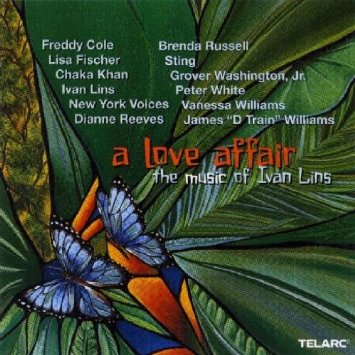
And the other was working with Ivan Lins. He’s from Brazil. Most jazz musicians really know who he is. Sting is a really big fan of his. So I got a call from Jason Miles, who’s a wonderful producer out of New York, who asked me if I could write a lyric for Sting to the music of one of Ivan’s songs. You know, writing a lyric for Sting is no easy task. But I had two days to do it, and then he said the next day I called him and said, “I got it!” [laughs] He just told me that this weekend – it was funny. And Sting won a Grammy for that song – it’s called “She Walks This Earth”. It’s on a tribute album to Ivan Lins, who we are all major fans of. So that was exciting. I’ll always share that with Sting. I helped him win another gazillionth Grammy [laughs].
JM: Was Sting doing the performance that you just saw in New York?
BR: Yeah, he does eight shows a week. I’m so impressed with him, because it’s not easy. And he’s fantastic. He’s a great actor, his singing voice kills you, and the music is all his so you know his style. Some of the music is so moving, it made me cry. It was just so beautiful. Like “Fragile”, you know how sensitive and tender that song was? He’s put songs like that in this show. I was blown away, blown away.
JM: Do you have any aspirations to act in a musical, maybe the new one you’re writing?
BR: No. I did a musical when I was about 19 years old. I was in the musical Hair, which had casts all over the world. I was in the Toronto cast, because that’s where I lived at the time. That was a lot work. I was 19 – young and ready – and it still practically killed me. It was eight shows a week, and we were on our knees a lot in that show. To this day my knees are yelling at me for doing that [laughs]. But it was a lot of fun. A great experience.
JM: Well, at least that helps you to appreciate what it’s like for the cast.
BR: They work so hard. You have no idea. People have no idea how hard these people work. They rehearse six, seven weeks, hitting that dance floor at the dance studio hard. And they’ve got to learn the songs, and they’ve got to learn the harmonies. I had a lot of fun – I got to teach them the harmonies. I work with the singers a lot in the show.
And The Color Purple is coming back to Broadway. It’s coming back in December. It’ll be our tenth anniversary, and Jennifer Hudson is going to be starring in it. That should be pretty amazing.
JM: Maybe I’ll have to make a trip to New York City.
BR: I’m encouraging everybody to do that, because it’s going to be something special to see her in a musical. This will be her Broadway debut.

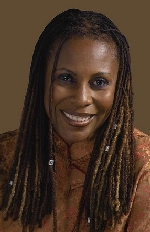
Discussion
No comments for “Interview: Brenda Russell”